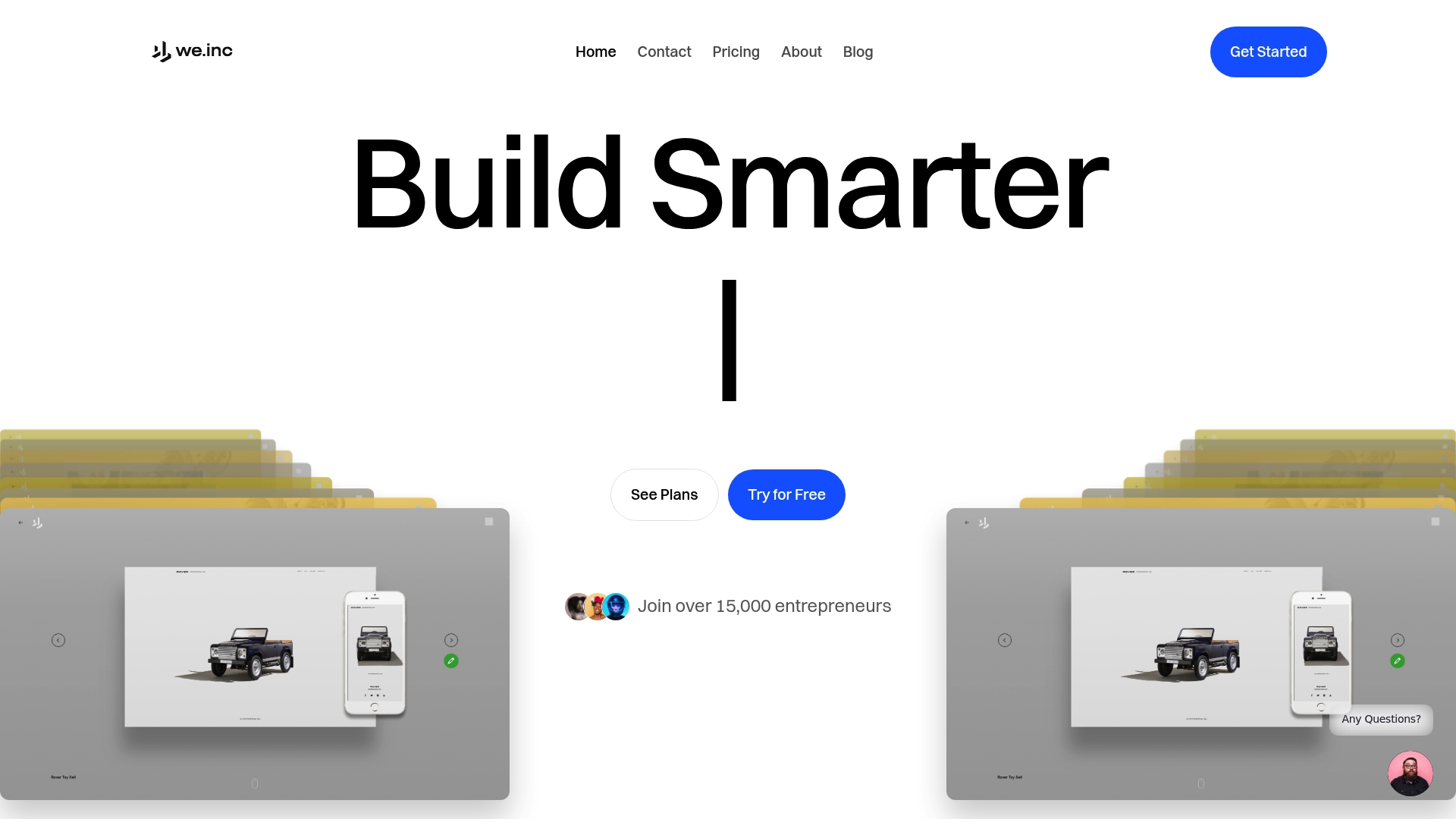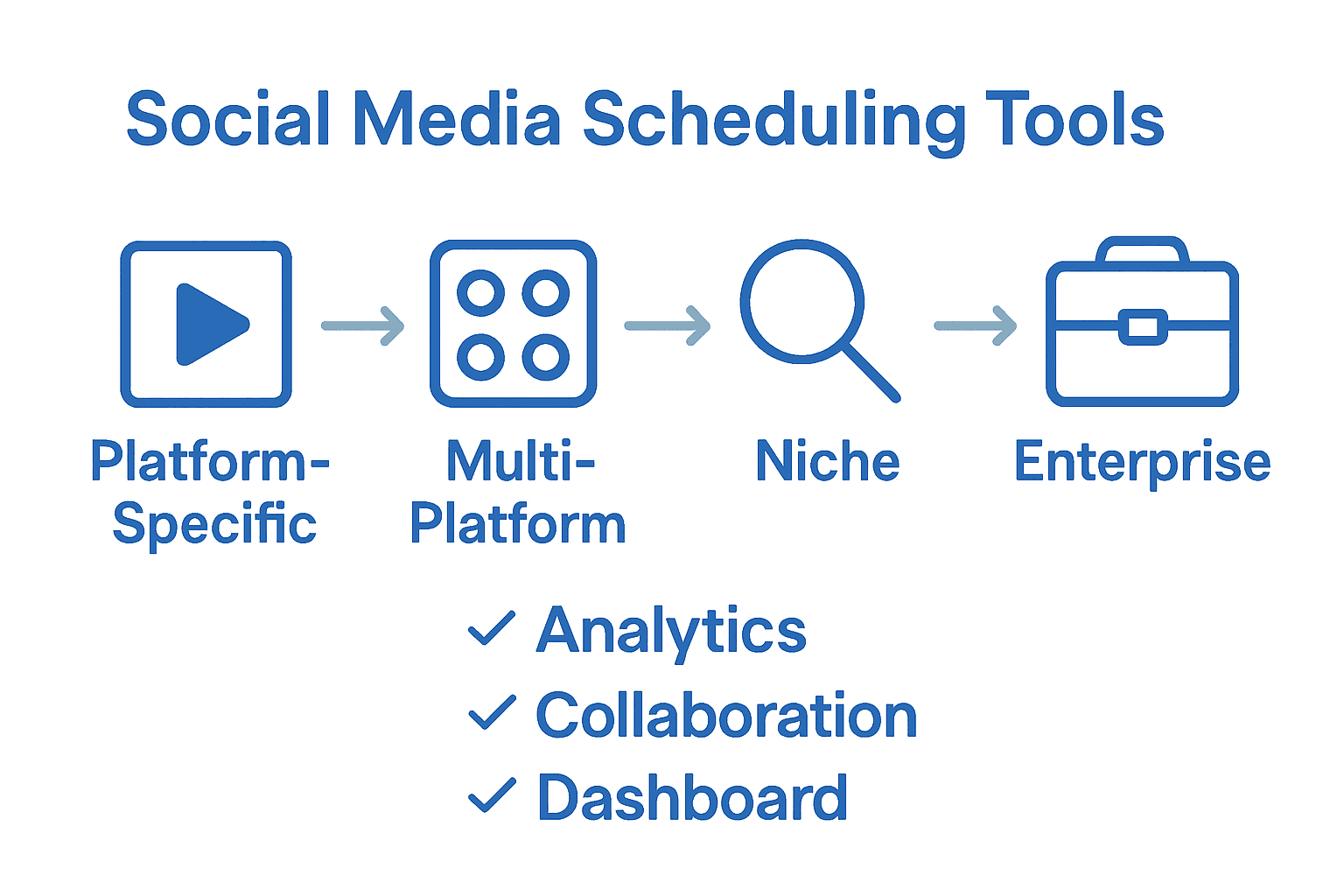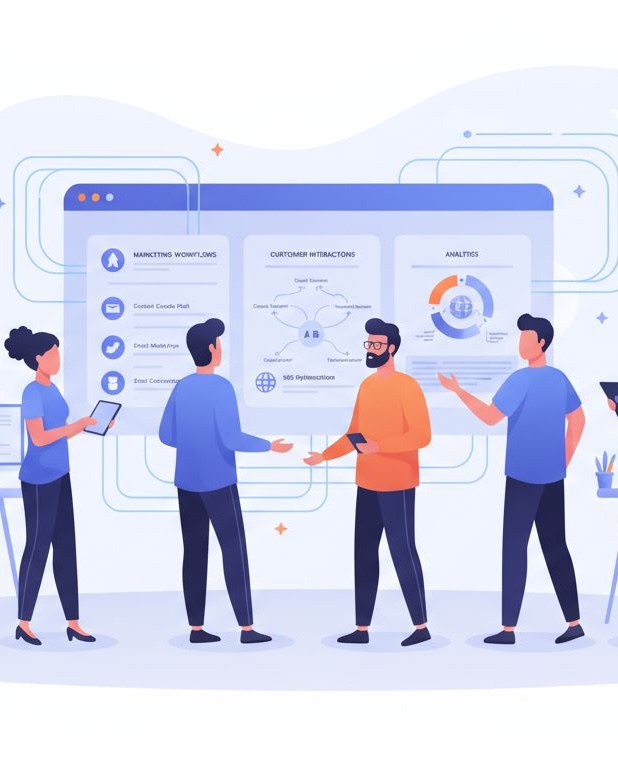Role of Social Media Scheduling: Complete Guide

Did you know that brands maintaining a regular social media schedule see up to 40 percent higher audience engagement compared to those posting sporadically? In today’s fast-moving digital space, every business competes for attention, making consistency and timing more crucial than ever. Understanding how professional scheduling works can help you reach your audience more effectively, cut back on daily stress, and keep your content fresh while building meaningful connections online.
Table of Contents
- Defining Social Media Scheduling And Its Purpose
- Types Of Social Media Scheduling Tools
- How Automated Scheduling Drives Engagement
- Best Practices For Multi-Platform Management
- Common Mistakes And How To Avoid Them
Key Takeaways
| Point | Details |
|---|---|
| Strategic Scheduling | Social media scheduling ensures consistent content delivery, optimizes audience engagement timing, and reduces content creation stress. |
| Tool Utilization | Choosing the right social media scheduling tool is crucial, as it can streamline content management and provide essential analytics for performance tracking. |
| Automated Engagement | Automated scheduling drives audience engagement by maintaining a predictable posting rhythm and allowing real-time interactions. |
| Common Mistakes | Avoiding pitfalls such as lack of strategic goals, inconsistent posting, and neglecting audience-specific content customization is essential for effective social media management. |
Defining Social Media Scheduling and Its Purpose
Social media scheduling is a strategic approach to planning, creating, and publishing content across digital platforms systematically. According to research from digital communication experts, this process involves mapping out social media posts in advance to maintain a consistent and engaging online presence.
At its core, social media scheduling serves multiple critical purposes for businesses and professionals. These include:
- Ensuring consistent content distribution
- Optimizing posting times for maximum audience engagement
- Reducing daily content creation stress
- Allowing strategic content planning across multiple platforms
A social media content calendar acts as the primary tool in this process. As research from communication experts indicates, it helps individuals and organizations map out content precisely - detailing what will be posted, when it will be published, and on which specific platforms. This methodical approach transforms random posting into a deliberate, goal-oriented strategy.
Professional social media scheduling goes beyond simply automating posts. It requires understanding audience behaviors, platform algorithms, and crafting a narrative that resonates across different digital channels. By implementing a robust scheduling strategy, businesses can create a more cohesive, impactful social media presence that drives meaningful audience connections.
Learn more with our comprehensive Social Media guide to elevate your digital marketing approach.
Types of Social Media Scheduling Tools
Social media scheduling tools have revolutionized digital marketing by providing comprehensive platforms for content management across multiple channels. According to research from digital marketing resources, these tools enable users to post simultaneously to various platforms and optimize content timing for maximum engagement.
The landscape of social media scheduling tools is diverse, with solutions catering to different professional needs:
Here’s a comparison of common social media scheduling tools and their key features:
| Tool Type | Example Tools | Platforms Supported | Key Features |
|---|---|---|---|
| Platform-Specific | Facebook Publishing Tool TweetDeck |
Single platform | Post customization Basic analytics |
| Multi-Platform Schedulers | Buffer Hootsuite |
Multiple networks | Unified dashboard Scheduling Basic analytics |
| Niche Platform Tools | Planoly | Instagram |
Visual planning Hashtag management |
| Enterprise-Level Solutions | Sprout Social Agorapulse |
Multiple networks | Advanced analytics Team workflows Collaboration tools |
- Platform-Specific Tools: Targeted solutions like Facebook Publishing Tool for Facebook posts and TweetDeck for Twitter management
- Multi-Platform Schedulers: Comprehensive tools such as Buffer and Hootsuite that support posting across numerous social networks
- Niche Platform Tools: Specialized platforms like Planoly for Instagram content planning
- Enterprise-Level Solutions: Advanced tools offering detailed analytics and team collaboration features
Research from social media experts indicates that these tools provide critical functionalities beyond simple scheduling. They offer features like content calendars, performance tracking, audience engagement insights, and automated posting capabilities. By leveraging these sophisticated platforms, businesses can streamline their social media strategies and maintain a consistent online presence.

Choosing the right scheduling tool depends on your specific business needs, platform requirements, and marketing goals. Explore our Unlimited AI Suite to discover integrated solutions that can transform your social media management approach.
How Automated Scheduling Drives Engagement
Automated scheduling transforms social media engagement by enabling businesses to maintain a consistent and strategic online presence. According to research from digital communication experts, this approach allows organizations to plan and deliver content systematically, ensuring continuous audience interaction.
The key benefits of automated scheduling for driving engagement include:
- Maintaining a predictable content rhythm
- Reaching audiences at optimal times
- Reducing manual posting stress
- Freeing up time for real-time interaction
- Ensuring consistent brand messaging
Research indicates that utilizing scheduling tools provides critical advantages in audience connection. As communication strategy experts explain, pre-scheduling posts ensures timely content delivery while simultaneously creating space for spontaneous engagement. This balanced approach allows brands to appear both methodical and responsive.
Moreover, automated scheduling enables businesses to craft a narrative arc across their social media platforms. By strategically planning content in advance, organizations can create anticipation, build narrative momentum, and maintain audience interest.
The ability to schedule posts across different time zones and peak engagement windows means businesses can reach global audiences without constant manual intervention.
Explore our guide on 7 Essential AI Tools for Startups to discover how technology can supercharge your social media strategy.
Best Practices for Multi-Platform Management
Multi-platform social media management requires a strategic approach that goes beyond simple content distribution. According to research from digital communication experts, effectively managing multiple social channels demands careful planning, platform-specific customization, and sophisticated scheduling techniques.
Key best practices for successful multi-platform management include:
- Develop platform-specific content strategies
- Understand unique audience demographics for each channel
- Maintain consistent brand voice across platforms
- Use integrated scheduling tools for seamless management
- Monitor and analyze performance metrics regularly
Research from communication professionals indicates that tailoring content to each platform’s unique characteristics is crucial. What works on LinkedIn might not resonate on Instagram, making platform-specific content adaptation essential. This means adjusting not just visual elements, but also tone, format, and messaging to match each platform’s audience expectations.
Effective multi-platform management also requires selecting the right tools that support comprehensive scheduling and analytics. These tools should offer cross-platform posting capabilities, real-time performance tracking, and intuitive workflows that simplify content coordination. By implementing a systematic approach and leveraging advanced scheduling technologies, businesses can create a cohesive, engaging social media presence that maximizes audience reach and interaction.
Learn more with our guide on 7 Essential AI Tools for Startups to streamline your multi-platform social media strategy.
Common Mistakes and How to Avoid Them
Social media scheduling can quickly become ineffective when businesses fall into predictable traps. According to research from digital communication experts, many organizations struggle with consistent and strategic social media management due to common but avoidable mistakes.
Key mistakes in social media scheduling include:
- Posting without clear strategic goals
- Neglecting audience-specific content customization
- Inconsistent posting frequency
- Ignoring performance analytics
- Over-automating without human touch
- Failing to adapt content for different platforms
According to research from communication planning experts, one of the most critical errors is not defining clear objectives before launching social media campaigns. Without specific, measurable goals, businesses risk creating content that lacks direction and fails to engage their target audience. This means understanding not just what to post, but why you’re posting and how each piece of content supports broader marketing objectives.
Another significant pitfall is maintaining an inconsistent posting schedule. Audiences develop expectations about content frequency and timing, and irregular posting can lead to decreased engagement and reduced follower interest. By implementing a structured content calendar and leveraging scheduling tools, businesses can create a predictable rhythm that keeps audiences anticipating and engaging with their content. The key is balancing automated scheduling with authentic, responsive communication.
Learn more with our guide on 7 Essential AI Tools for Startups to transform your social media strategy and avoid common pitfalls.
Tired of Inconsistent Social Media Results? Discover the Fast Track to Seamless Scheduling
Struggling to keep up with regular posting, managing multiple channels, or keeping your brand message clear? If inconsistent engagement and the stress of daily scheduling are holding you back, it is time to streamline your approach. Automated social media scheduling can drive real results, but only with the right tools and strategy. The pain of juggling platforms and missing prime engagement windows is real, but you do not have to face it alone.

Experience how We.inc empowers you with an entire digital growth toolkit built for speed and simplicity. Build high-converting sites fast, automate your marketing, and manage all your social channels from one dashboard. Whether you are an entrepreneur or an agency, our platform takes the complexity out of scheduling with AI-driven content and easy automation.
Ready for predictable engagement and less stress? Explore We.inc today to see how simple social media management can be. Take control of your schedule and amplify your impact. Get started now and unlock your advantage.
Frequently Asked Questions
What is social media scheduling, and why is it important?
Social media scheduling is the process of planning, creating, and publishing content on social media platforms in advance. It is important because it ensures consistent content distribution, optimizes posting times for audience engagement, reduces daily content creation stress, and allows for strategic planning across platforms.
What are the different types of social media scheduling tools available?
There are several types of social media scheduling tools, including platform-specific tools (e.g., Facebook Publishing Tool), multi-platform schedulers (e.g., Buffer, Hootsuite), niche tools (e.g., Planoly for Instagram), and enterprise-level solutions (e.g., Sprout Social, Agorapulse). Each type offers different features tailored to specific needs.

How can automated scheduling improve social media engagement?
Automated scheduling improves social media engagement by maintaining a consistent content rhythm, reaching audiences at optimal times, and allowing more time for real-time interactions. It enables businesses to deliver timely content while ensuring that brand messaging is consistent across platforms.
What are the common mistakes to avoid in social media scheduling?
Common mistakes include posting without clear strategic goals, neglecting audience-specific content customization, inconsistent posting frequency, ignoring performance analytics, over-automating content, and failing to adapt materials for different platforms. Avoiding these pitfalls can lead to more effective social media strategies.
%20(1).svg)

